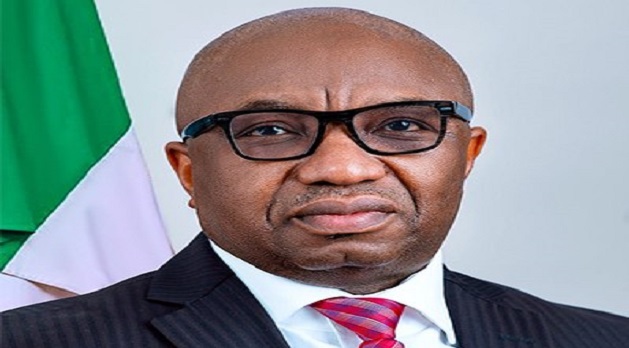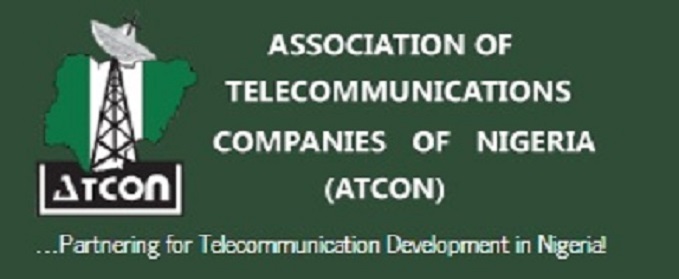Editorial
Missing Link in NigComSat
Nigeria communication Satellite (NigComSat) launched into the orbit over 18 months ago with fanfare is never shy of the storm.
In fact, NigComSat, a public private partnership under the Federal Ministry of Science Technology whose mission is to be the leading communication satellite operator and service provider thrives in controversy.
First was the decision to award the about N40 billion contract to China. The decision drew sharp divides because it was the first time a foreign buyer has purchased a Chinese satellite and its launching service.
The materials used in the building of the satellite by the Chinese were said to have also been in question. The solar panel was said to be faulty and not working.
Then there was that needless and protracted battle between the company and Nigerian Communications Commission (NCC), apex regulator of the telecom industry in the country over last mile telecom licensing.
A last mile service provider is a term for operators that offer telecommunications services directly to end users – the subscribing public and NCC insisted NigComSat was not qualified until a presidential fiat gave it the license.
As that was about to settle down, Nigerian Communications Satellite announced plans to launch NigComSat-2 and 3 as part of the satellite firm’s expansion vision to ensure that the benefits of the satellite’s applications are enjoyed by all on the African continent.
This is despite the fact that NigComSat 1 has not really achieved the advertised mission of serving mobile phone users, facilitating internet performance in remote regions and improving overall telecommunications.
The icing on the cake for NigComSat was inclusion of Timasaniyu Ahmed-Rufai, managing director NigComSat, as a non-executive director and member of Nigerian Telecommunications (Nitel) board of directors.
Critics said that the move was strange while Nitel said that it marks the beginning of a rewarding partnership that will benefit both organizations and their customers.
Instead of concentrating on the major issues, NigComSat appeared to thrive in controversy after controversy.
For instance, a project of such scale would have mobilized the nation’s top scientists and engineers in conceiving, designing and executing the project.
In place of Nigerian engineers, Chinese engineers with little experience in satellite technology were used and the result is untested technology.
In future, Nigerian Academy of Science, Nigerian Society of Engineers and other scientific bodies should be involved so that Nigeria do not continue to pay dearly for deliberate mistakes.
Editorial
NDPC Boss Nominated for Global Privacy Assembly’s Giovanni Buttarelli Award 2024

Dr Vincent Olatunji, National Commissioner and Chief Executive Officer of Nigeria Data Protection Commission (NDPC), has been nominated for the Giovanni Buttarelli Award 2024. The award through the Global Privacy Assembly recognises an individual’s outstanding leadership and exceptional efforts in fostering international collaboration.

Dr Vincent Olatunji
This nomination highlights Dr Vincent’s commitment to driving innovation, expanding global partnerships, and promoting a collaborative approach within the data privacy and protection ecosystem.
Under the visionary leadership of Dr Vincent, the Data Privacy ecosystem in Nigeria has witnessed a remarkable growth through key milestones such as deepening the knowledge of data protection and privacy in all public and private institutions, judicial recognition of adequacy principle in cross-border data transfer, playing key roles in regional and global data privacy ecosystem, commencement of bilateral cooperation with other jurisdictions, licensing of data protection compliance organisations, commencement of national data protection certification process, among others.
Dr Vincent’s strategic and innovative initiatives has been instrumental in forging strong international partnerships, driving sustainable growth, fostering a culture of collaboration which has not only propelled the NDPC to new heights but also set a benchmark for international cooperation and industry standards.
The Giovanni Buttarelli Award celebrates leaders who have demonstrated exceptional leadership and/or promoted collaboration at a regional or international level in the field of data privacy and protection.
Nominees are evaluated based on their contributions to projects that has led to the development of innovative concepts or practices, which have significantly impacted the thinking in the international data protection and privacy community, partnerships, and initiatives that enhance global cooperation and development.
In his response to his nomination, Dr Vincent Olatunji expressed his gratitude and emphasised on the importance of collective effort in achieving global progress. “I am deeply honored to be nominated for the Giovanni Buttarelli Award 2024” said Dr Vincent.
“This recognition is a testament to the hard work and dedication of our entire team at NDPC. It underscores the power of collaboration and the remarkable outcomes we can achieve when we work together across borders.
“I am excited to continue our journey, driving innovation and fostering partnerships that make a positive impact globally,” he said.
Editorial
Telcos Ask NCC to Allow Them Hike Tariff

Telecoms operators including MTN, Airtel and Globacom have pushed for cost-reflective tariff in view of extant economic realities.

This was contained in a statement jointly released by the Association of Licensed Telecom Operators of Nigeria (ALTON) and the Association of Telecommunication Companies of Nigeria (ATCON) on Thursday.
The statement was co-signed by Gbenga Adebayo; chairman, ALTON and Tony Emoekpere, president, ATCON.
The telcos called upon the government to take decisive action in addressing the numerous challenges confronting the telecommunications industry.
The telcos said telecommunications infrastructure development requires substantial investments in network expansion, maintenance, and technology upgrades.
“Despite the adverse economic headwinds, the telecommunications industry remains the only industry yet to review its general service pricing framework upward in the last (11) years, primarily due to regulatory constraints.
“For a fully liberalized and deregulated sector, the current price control mechanism, which is not aligned with economic realities, threatens the industry’s sustainability and can erode investors’ confidence.
“ATCON and ALTON call upon the government to facilitate a constructive dialogue with industry stakeholders to address pricing challenges and establish a framework that balances consumers’ affordability with operators’ financial viability,” the statement partly read.
Regarding the Nigerian Communications Commission (NCC), the telcos also said regulatory neutrality and independence are crucial to ensuring a thriving telecommunications sector.
“Statutory provisions lend credence to this notion, as a lack of an impartial regulator will lead to a failure to maintain public confidence in the objectivity and independence of its decisions,” the statement added.
Editorial
FG Reiterates Commitment to Achieving 17 SDGs

The federal government has reiterated its commitment to achieving all the 17 Sustainable Development Goals (SDGs) to promote economic growth and eliminate poverty in Nigeria.

The Minister of Special Duties and Intergovernmental Affairs, Senator George Akume, gave the assurance at a news conference on Tuesday, in Abuja ahead of the “Inaugural Partnership Economy Summit”, scheduled for September 14 and 15.
According to Akume, the primary purpose of the summit is to diversify the economy, promote rural growth, as well as generate sustainable jobs for the youths.
Achieving this, the minister emphasised on partnership with other stakeholders as it was the responsibility of his ministry to achieve the aim of its mission and the creation.
“The framework for the upcoming summit, guided by the principles of Public Social Private Partnership (PSPP) is being designed to develop, promote a multi-Iayered collaborative socio-economic platform for the government, the business sector as well as the civil society.
“In order to achieve this, President Muhammadu Buhari established the ministry with the mandate to develop and implement policies, programmes and projects for the effective and efficient delivery of the gains of Economic Growth and Recovery Plan,” Akume said.
He said the ministry was also charged with the mandate of collaborating with the private sector to create employment for a large number of Nigerian youths, adding that it is also meant to implement a strategy towards the realisation of the president’s June 12 promise to take 100 million Nigerians out of poverty in 10 years.
“Nigeria is among the countries in the UN that signed a pact to implement the SDGs by 2030, in the words of Ban Ki-Moon, former Secretary-General of UN in 2016.
“Nigeria is not left out in its plan towards achieving the SDGs, and how far has Nigeria gone to achieving the 806 goals is part of the questions that the upcoming summit seeks to address,” Akume explained.
He stated that to tackle the issue of poverty and unemployment, the ministry is in partnership with a number of stakeholders, including the Ministry of Industry, Trade and Investment; and Small and Medium Enterprises Development Agency of Nigeria.
Others are Raw Materials Research and Development Council, National Orientation Agency, Association of Local Government of Nigeria and SDGs Nigeria as well as MYK Psymmons Solutions Limited to come up with achievable solutions to all the challenges.

 Telecom2 days ago
Telecom2 days agoTelecom Operators Invest Over $1Bn on 2,850 New Sites in 2025 – NCC

 E-Financial2 days ago
E-Financial2 days agoAmaanah Finance to Unveils Non-Interest Banking Services Today

 E-Financial2 days ago
E-Financial2 days agoIf Capital is the Answer, What Exactly is the Problem with First Holdco

 General News2 days ago
General News2 days agoFirst Trustees to Host 8th Islamic Estate Planning Clinic in Abuja

 News2 days ago
News2 days agoNSCDC Hands over Fake Crypto Currency Trader to EFCC

 News2 days ago
News2 days agoAlakija’s Flourish Africa Provides N300m Grants for Women Entrepreneurs

 General News2 days ago
General News2 days agoSecurity Forces Probe Use of Drones by Terrorists

 Broadcasting2 days ago
Broadcasting2 days agoNew Horizons Nigeria Breaks Ground: First to Fuse Mandarin into ICT Curriculum















